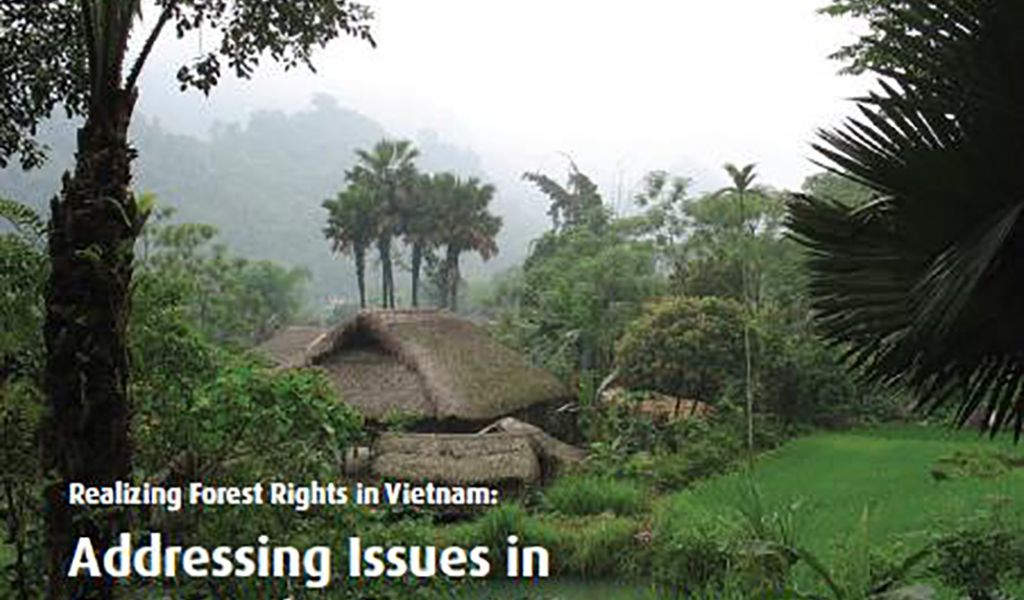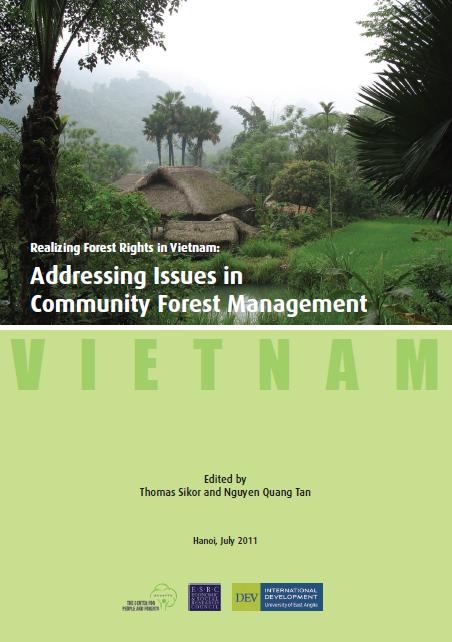Realizing forest rights in Vietnam

One can easily get the impression that forest policy is predominantly made at global summits and in transnational initiatives these days. Consider, for example, the attention given to the recent Conference of Parties to the UNFCCC in Durban.
Yet in practice, national governments remain the primary actors in forest policy-making in most countries. National law defines the statutory tenure rights granted to local communities. National regulatory frameworks condition local communities’ ability to utilize forest tenure rights in practice.

For this reason, national policy analysis and national-level engagement with stakeholders remain of critical importance for community forestry and sustainable forest management. Thus, a new publication edited by Thomas Sikor from the University of East Anglia and Nguyen Quang Tan from RECOFTC – The Center for People and Forests entitled Realizing Forest Rights in Vietnam: Addressing Issues in Community Forest Management provides valuable insights into forest policy in Vietnam.
Vietnam’s government has created strong foundations for the development of community forest management through tenure reform, or Forest Land Allocation, as it is commonly referred to in Vietnam. Back in 1993, the government enacted groundbreaking legislation that mandated the transfer of forest tenure from State Forest Enterprises to local people. Since then, Forest Land Allocation has transferred tenure rights to 26% of the total forest area to local communities (including individual households, household groups and whole villages). This is an impressive achievement that attests to the significance of national capacity for the design and implementation of forest policy.
Nevertheless, there are obvious ways to deepen forest tenure reforms in Vietnam. First, the country requires reinvigorated efforts to expand Forest Land Allocation to communities, increasing the share of forests under community management. This expansion needs to develop and apply new procedures that are more responsive to local communities’ needs and aspirations.
Second, giving rights to forest to local communities is not enough to improve local livelihoods and conserve existing forest resources. Further policy reforms need to strengthen communities’ forest tenure rights, and facilitate communities to generate tangible benefits from forests. Vietnam’s government has yet to create the required enabling regulatory frameworks for community-based forest management planning, benefit-sharing, PFES and REDD+ contracts, shared forest governance, and the operation of Civil Society Organizations.
These strategic interventions, if implemented, would enable community forest management to make crucial contributions to sustainable forest management and socio-economic development in Vietnam. The burden is upon Vietnam’s government and national policy-making processes to put them into practice.
Realizing Forest Rights in Vietnam: Addressing Issues in Community Forest Management is based on a collection of policy briefs produced under a project funded by the UK Economic and Social Research Council (ESRC) designed to highlight key issues related to forest management and advocate for national policy on forest rights and community forest management. The individual policy briefs, in English and Vietnamese, can also be found on the RECOFTC website.

